On 28 January 2025, the High Court of South Africa (Gauteng Division) delivered a judgment on the matter concerning the increase in electricity tariffs for the 2024-2025 financial year, as implemented by Mogale City Local Municipality. In its application, AfriForum argued that the proposed tariff increases, which had been approved by the National Energy Regulator of South Africa (NERSA) prior to municipal enactment, should be set aside. The organisation contended that the increases were excessive, did not align with NERSA’s determined tariffs, lacked proper public consultation, and fell short of transparency from the municipality, among other issues raised in court. While the municipality refrained from commenting on the matter during the court proceedings due to it being sub judice, the municipality’s Legal Division now wishes to inform the media and public of the court’s outcome.
Court ruling
The High Court dismissed AfriForum’s application, ruling that the lawsuit was invalid, largely due to the municipality’s exclusion of NERSA as a party to the case (a non-joinder issue). The court affirmed that tariffs are determined and approved by NERSA before municipal implementation and are regulated by the energy regulator. As a result, the application was deemed “totally flawed” due to the non-joinder of NERSA. The court’s decision aligns with the municipality’s position, which maintains that the increase in tariffs followed the approval of the Cost of Supply Report by NERSA. Following this, Council approval was sought for the proposed tariffs, as endorsed by the energy regulator.
Tariff design
Despite disputes from resident associations, opposition political parties, businesses, and residents, it is important to note that the tariffs are designed to be cost-reflective and promote efficient energy usage. High usage is charged at higher rates, while low usage is charged at lower rates, encouraging responsible energy consumption. Additionally, the municipality’s electricity tariffs are structured to protect low-income households by using Inclined Block Tariffs (IBT). These tariffs increase with higher electricity usage, assuming that poor households use less electricity. IBT is also designed to encourage prepaid electricity use, as no fixed service charges are applied to prepaid users, reducing costs related to debt collection and meter reading.
